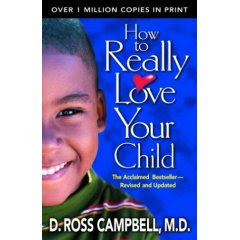"I will instruct you and teach you in the way you should go; I will counsel you and watch over you." ~Psalm 32:8
Some people have asked about what I/we read during this season of our lives. We did read several things that we have recommended to people time and time again. These titles impacted us the most as we focused on various areas of healing. For those who are interested, here are three annotated titles. God bless you!
* * * * * * * * * * * * * * *
 Sledge, Tim. Making Peace with Your Past: Help for Adult Children of Dysfunctional Families. Lifeway Press:
Sledge, Tim. Making Peace with Your Past: Help for Adult Children of Dysfunctional Families. Lifeway Press:
The workbook is designed for use in support/small groups. It consists of twelve units, each with five days worth of study and reflection. The units included are: (1) Discovering Self-Esteem, (2) Recognizing Compulsive Behavior, (3) Release from Shame, (4) Overcoming the Fear of Joy, (5) Help for People Who Grew up Too Soon, (6) Perfectionism and Procrastination, (7) Healing Painful Memories, (8) The Advantages of a Turbulent Past, (9) It’s OK to Be Yourself, (10) Forgiving the People Who Hurt You, (11) Coming to Terms with the Blessing, and (12) Reflection and Direction.
There is a follow-up workbook to this one entitled Moving Beyond Your Past, also by Tim Sledge.
* * * * * * * * * * * * * * *
 Harley, Willard F., Jr. His Needs, Her Needs for Parents: Keeping Romance Alive. Fleming H. Revell:
Harley, Willard F., Jr. His Needs, Her Needs for Parents: Keeping Romance Alive. Fleming H. Revell:
Kids are definitely a blessing from God, but they change relationships – just ask any married couple who happens to have little people in the house. However, kids don’t have to destroy marriages. The author of the popular His Needs, Her Needs, Dr. Harley, helps couples recognize where they are putting the kids before each other and offers very practical (if you know me, you know I live for “very practical”) suggestions for reversing that trend. I have also given this book to couples who do not yet have children, or who are expecting their first, as it offers some good advice for childproofing your marriage in advance of the onslaught, uh, I mean “happy addition.” *grin*
The book is divided into an introduction ("And Then There Were Three: Are Children a Threat to Your Marriage?"), three main parts, and a conclusion. Part One, “Romantic Relationships,” includes the following chapters: What’s Love Got to Do With It? (Why Romance Matters), Just Between You and Me (Intimate Emotional Needs), Love Takes Time (The Policy of Undivided Attention), Love Bankruptcy (When Love Busters Break the Bank), and Declaration of Interdependence (The Policy of Joint Agreement).
Part Two is titled “A United Approach to Parenting” and includes five chapters: Ready for Kids? (Deciding to Expand Your Family), Rules of the House (Deciding on Child-Training Goals and Methods), The Time Factor (Practicing the Policy of Undivided Attention), His Work, Her Work (How to Divide Domestic Responsibilities), and Parenting Takes Time (How to be a Committed Mom and Dad).
Part Three focuses on “Special Cases:” Mixed Families, Blended Lives (From Discord to Harmony), Disorder or Gift? (How to Deal with ADHD), and When Grandma Won’t Let Go (Dealing with Intrusive In-Laws). The conclusion is entitled "Love is Fragile, Handle with Care: For Lovers who are Parents."
* * * * * * * * * * * * * * *
 Campbell, D. Ross, MD. How to Really Love Your Child. Life Journey:
Campbell, D. Ross, MD. How to Really Love Your Child. Life Journey:
Again, very practical! This book is filled with “Duh!” moments, but that’s good because while we think we are loving our kids (we kiss them and tuck them in at night, we clothe, feed, and house them, we make sure they are well-educated, we faithfully attend their basketball games and ballet recitals, etc.), the truth is that sometimes, despite these things, they don’t really feel our love - we just don't realize it. From a Christian perspective, Dr. Campbell establishes for parents what are the emotional needs of their children, and then offers specific, practical (and, for the most part, very easy!) suggestions for relating to them in ways that convey our love more powerfully than being their providers could ever do alone.
Chapters include: (1) The Problem, (2) The Setting, (3) The Foundation, (4) How to Show Love Through Eye Contact, (5) How to Show Love Through Physical Contact, (6) How to Show Love Through Focused Attention, (7) Appropriate and Inappropriate Love, (8) A Child’s Anger, (9) Discipline: What is it?, (10) Loving Discipline, (11) Discipline: Requests, Commands, Rewards, and Punishment, (12) Children with Special Problems, and (13) Helping Your Child Spiritually.
Dr. Campbell has also published related titles, How to Really Love Your Angry Child, and How to Really Love Your Teen.

No comments :
Post a Comment